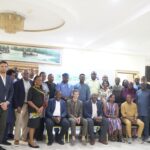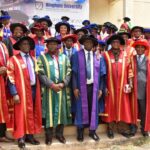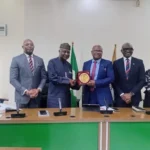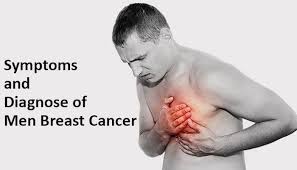By Amina Ahmed
Dr Habiba Ismail, President of the National Cancer Society, Bauchi State Chapter, has urged men to undergo regular breast cancer screening to enhance early detection and ensure timely medical intervention.
Speaking in an interview with the News Agency of Nigeria (NAN) in Bauchi on Tuesday, Ismail emphasised that proactive health checks could significantly reduce fatalities linked to late-stage breast cancer diagnosis.
She explained that although breast cancer occurred more frequently in women, men above 30 years were also at risk and needed to prioritise regular self-examinations and professional screening to safeguard their health.
“I attended a medical conference where several men shared their experiences as breast cancer survivors,” she noted, stressing that such testimonies highlighted the importance of vigilance and timely medical consultation.
Ismail added that breast cancer could be hereditary, particularly from the maternal side, and revealed a possible connection between breast and prostate cancers, underscoring the need for increased public awareness.
The oncologist advised adults to perform routine physical checks and promptly report unusual breast changes or lumps to health facilities for early diagnosis, proper treatment, and improved survival chances.
She described the growing prevalence of cancer in Nigeria as a public health emergency, calling for urgent government intervention and stronger community-based campaigns to promote preventive healthcare practices.
Addressing cervical cancer, Ismail warned women against using chemical substances in their private parts, explaining that such practices could damage tissues and increased vulnerability to infections and cancerous growth.
She linked the high incidence of cervical cancer to early marriage and multiple sexual relationships, urging women to embrace safer sexual practices and regular medical screening for improved reproductive health.
The expert advocated wider uptake of the Human Papilloma Virus (HPV) vaccine among adolescent girls and boys, stressing that immunisation remained a critical tool in preventing future cervical and other related cancers.
Ismail further appealed for collective efforts and intensified grassroots awareness campaigns to educate communities on cancer prevention, early detection, and healthy living for better national health outcomes. (NAN)(www.nannews.ng)
Edited by Abiemwense Moru












Can you be more specific about the content of your article? After reading it, I still have some doubts. Hope you can help me.
Can you be more specific about the content of your article? After reading it, I still have some doubts. Hope you can help me. https://accounts.binance.com/register-person?ref=IXBIAFVY